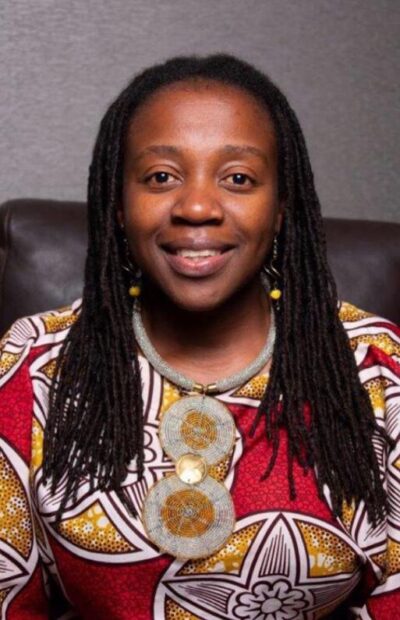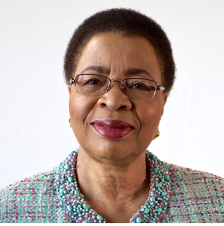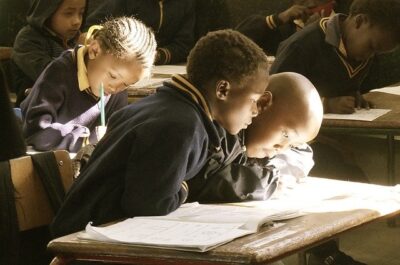Nine years ago Jackie Bouvier bore a dream, the Black Philanthropy Month (BPM); a global celebration, revival and mobilization of Black giving in all its forms to advance black communities everywhere. Her dream has since been endorsed by over 30 governmental bodies including the United Nations declaring every August Black Philanthropy Month.
To date, 17 million people have celebrated BPM with black people worldwide giving billions of dollars in philanthropy, and there is a growing social impact investing and venture funding movement, too. With the challenge of Covid-19 and most events being held remotely, this year’s event was a combination of sophisticated social media activities with in-person and virtual events organized by changemakers worldwide.
Each of these convenings and discussions were designed to mobilize black philanthropists, social and angel investors, venture capitalists as well as non-black allies, along with leaders of nonprofits, businesses, communities and movements to create a set of shared funding guidelines for an effective black community recovering and rebuilding.
Among the leaders called upon to speak at the event was the Trust’s founder Ms Graça Machel. However, due to prior commitments, her speech for the Closing Session of the Virtual Black Philanthropy Month Summit was read by Dr Shungu Gwarinda, Interim CEO of the Graça Machel Trust.

Dr. Shungu Gwarinda, GMT Interim CEO.
At the beginning of the speech, Ms Machel recognised the severity of COVID-19’s impact on lives in the African continent. “COVID-19 has unearthed, in sharp focus, the different levels of inequalities, poverty, underdevelopment and social inequities of our different countries and regions. At the same time, COVID-19 has given us a chance to reshape and reposition ourselves, our actions and work – including how we view civil society and philanthropy in Africa, in particular.”

GMT Founder- Graca Machel.
Role of Citizens
Ms Machel shared that African philanthropists and Africans in the diaspora have a window of opportunity to work collectively to boost development for the African continent. However, to do this, there is a need to locate the role of citizens and their formations including movements at the centre of the many changes that have taken place historically across the world and in Africa. “It is time to integrate the participation of citizens into the many processes and efforts geared towards nation-building. Transforming our societies can only happen if citizens’ contributions are recognized, acknowledged and supported.”
She noted that only governments and private sector efforts are counted in measuring the progress of nations, while citizens and their formations across the world keep societies intact and cohesive. Citing Zimbabwe as an example, where the citizens and civil society have kept the population going and provided the many services that are under the government’s mandate.
Civil Society
Ms Machel explained that civil societies play several functions including being watchdogs, advocates, experts, capacity builders and providers of solidarity support. “As advocates, civil society formations campaign and lobby both governments and the private sector on many issues that include among others indigenous rights, environment and human rights. The achievement of progress in the human and women rights sector is not a result of state benevolence but rather the struggles that minority groups and women have engaged in over many years. Many of the big changes historically have their origins in citizens and their organizations.”
She further recognised that civil society is also a far larger economic force to reckon with than previously assumed. “We know for example from the John Hopkins project that defined and measured the non-profit sector across the world that in 2010, in the 40 countries that were studied, the nonprofit sector represented UD$2.2 trillion in operational expenditures. This was larger than the GDP of all but six countries.”
Secondly, non-profit organisations employed nearly 56 million full-time equivalent workers a number bigger than several economic sectors such as construction, transport and communications in these countries. Volunteers comprised 42% of the non-profit sector workforce. “Yet with all the above statistics, in highlighting the state’s features of developmentalism, civil society’s role for the realization of development outcomes is often under-represented if not entirely sidelined in Africa,” she said.
She acknowledged that civil society is an integral part of democracy and development and requires support for its continued role. “By nature, civil society ought to not conform to norms that keep the status quo. This is why I believe COVID-19 is an opportunity for us to reshape our economies, our societies and it is our collective responsibility to influence our institutions to be transformative. This is what the Black Philanthropy Month is about. Thousands of young women and men demanding justice and equality, and taking to their streets from cities as far and wide as Los Angeles to Johannesburg,” she said.

Photo caption: Ludi from Pixabay.
Effects of COVID-19
“It is clear to me that we are amid a unique, definitive moment in history. COVID-19 has further pushed women, children, ethnic minorities, and people in under-resourced communities to unacceptable levels of marginalization and disenfranchisement.”
The World Bank estimates that Sub-Saharan Africa will see a significant economic decline and plunge 5% this year due to the COVID-19 global crisis. The region is predicted to fall into its first recession in 25 years, reversing encouraging gains over the past two decades. “The divides of inequality are deepening and expanding by the minute. As we take steps to mitigate these shocks and close these divides, the socio-economic approaches of previous decades are no longer fit for purpose. Business, as usual, will not work to get us back on track.”
Ms Machel asked that societies reimagine and redesign themselves to ensure that sustainable and equitable growth is a priority. “This is why I was pleased with the theme of this year’s summit as I believe philanthropists, in concert with civil society and individual citizens, can influence and accelerate meaningful transformation of our communities and help move the needle towards a society where men and women, black and white, are valued as equals.” At the end of her remarks, she talked about how the Trust has also been working to mitigate the effects of COVID-19. “We have been advocating that all COVID-19 efforts, first and foremost, take into account the gendered impacts and that all reconstruction efforts should be informed by the voices of women and that women’s leadership should be at the core of any response.”
She emphasized that without conscious efforts to centre women and girls at the core of COVID-19 recovery strategies, we risk the perpetuation of unhealthy power imbalances we have lived with for far too long, and we are likely to miss a critical window of opportunity to redesign human relationships into one of mutual respect and equity. “Philanthropists, investors and donors have an opportunity here to be an integral part of the redesign of our ways of living. Women are the backbone of African families and society at large. You can help sharpen the capacity of women as engines of economic growth as well as work in partnership with the private and public sectors to ensure equal rights in the workplace.” She encouraged philanthropists to target small and medium-sized businesses and rural associations to increase productivity in formal and informal economies and eradicate hunger and malnutrition.
In the education sector, she called for investment in ICT infrastructure to help bridge the inequality divide and retrain teachers on virtual curriculum so that every African child, especially the girl child, has access to quality education. She recognized that the pandemic had also generated groundbreaking innovations in Africa and its global diasporas’ civic and business sector. From drone-delivered COVID-19 testing kits in Ghana to automated robots providing screening services in Rwanda, Africa is fertile ground for technology advances that should be unleashed across the continent and exported to the rest of the world.
In many countries on the African continent, this pandemic is launching new homegrown and community-led approaches to health care, manufacturing, education and food supply. These are the innovations that will propel Africa beyond the pandemic and into a sustainable continent. “Let us join hands as equal partners in a spirit of generosity and human interconnectedness, and make this vision a reality. Aluta continua. I thank you.”










 The Trust supports and mobilises civil society networks on issues of ending child marriage, ending violence against children, ending female genital mutilation and promoting children’s rights, to carry out advocacy and action across Africa. Special focus is placed on Malawi, Mozambique, Tanzania and Zambia where child marriage continues to be a problem largely driven by poverty, gender inequality, harmful traditional practices, conflict, low levels of literacy, limited opportunities for girls and weak or non-existent protective and preventive legal frameworks.
The Trust supports and mobilises civil society networks on issues of ending child marriage, ending violence against children, ending female genital mutilation and promoting children’s rights, to carry out advocacy and action across Africa. Special focus is placed on Malawi, Mozambique, Tanzania and Zambia where child marriage continues to be a problem largely driven by poverty, gender inequality, harmful traditional practices, conflict, low levels of literacy, limited opportunities for girls and weak or non-existent protective and preventive legal frameworks.




 Education is a fundamental right for all children, which is also a vehicle for social, economic and political transformation in communities, countries and the African continent at large. Recent studies indicate a lack of progress in some of the critical commitments aimed at improving education quality, access, retention and achievement, particularly for girls. In most African countries, girls may face barriers to learning, especially when they reach post-primary levels of education. By implementing multi-dimensional approaches to education which includes core education, personal development, life skills and economic competencies, the Trust partners with funding partners, governments, civil societies and the private sector to improve education access.
Education is a fundamental right for all children, which is also a vehicle for social, economic and political transformation in communities, countries and the African continent at large. Recent studies indicate a lack of progress in some of the critical commitments aimed at improving education quality, access, retention and achievement, particularly for girls. In most African countries, girls may face barriers to learning, especially when they reach post-primary levels of education. By implementing multi-dimensional approaches to education which includes core education, personal development, life skills and economic competencies, the Trust partners with funding partners, governments, civil societies and the private sector to improve education access.

 The Nutrition and Reproductive, Maternal, New-born, Child and Adolescent Health and Nutrition, (RMNCAH+N) of the Children’s Rights and Development Programme aims at promoting the Global Strategy for women, children and adolescents’ health within the Sustainable Development Goals (SDG) agenda. The strategy emphasises on the importance of effective country leadership as a common factor across countries making progress in improving the health of women, children and adolescents.
The Nutrition and Reproductive, Maternal, New-born, Child and Adolescent Health and Nutrition, (RMNCAH+N) of the Children’s Rights and Development Programme aims at promoting the Global Strategy for women, children and adolescents’ health within the Sustainable Development Goals (SDG) agenda. The strategy emphasises on the importance of effective country leadership as a common factor across countries making progress in improving the health of women, children and adolescents. Through its Early Childhood Development (ECD) plan, The Trust will seek to put into action the new science and evidence Report that was presented by Lancet Series on Good and early development – the right of every child. This will be achieved by mobilising like-minded partners to contribute in the new science and evidence to reach all young children with ECD. The Trust’s goal is to be a catalyst for doing things differently, in particular, to rid fragmentation and lack of coordination across ECD sectors. In response to evidence showing the importance of political will in turning the tide against the current poor access and quality of ECD. Even before conception, starting with a mother’s health and social economic conditions, the early years of a child’s life form a fundamental foundation that determines whether a child will survive and thrive optimally.
Through its Early Childhood Development (ECD) plan, The Trust will seek to put into action the new science and evidence Report that was presented by Lancet Series on Good and early development – the right of every child. This will be achieved by mobilising like-minded partners to contribute in the new science and evidence to reach all young children with ECD. The Trust’s goal is to be a catalyst for doing things differently, in particular, to rid fragmentation and lack of coordination across ECD sectors. In response to evidence showing the importance of political will in turning the tide against the current poor access and quality of ECD. Even before conception, starting with a mother’s health and social economic conditions, the early years of a child’s life form a fundamental foundation that determines whether a child will survive and thrive optimally.